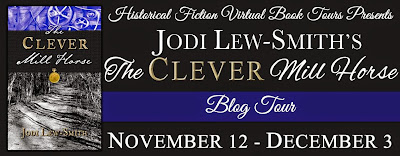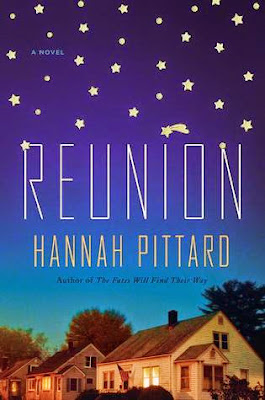This week's Top Ten Tuesday list, sponsored by the Broke and the Bookish, is the Top Ten Books I'm Looking Forward To In 2015. I'm quite sure that I'll be learning about lots more new releases in the coming weeks (and hopefully today from some of my fellow bloggers!), but here are ten titles that I'm anticipating so far:
West of Sunset: A Novel by Stewart O'Nan. I haven't read O'Nan in a while, but the premise of his latest caught my attention: the last, difficult year of F. Scott Fitzgerald's life, when he lived in Hollywood and tried to make it as a screenwriter. Sounds interesting! The publication date is January 13, 2015, and I'm happy to have an ARC--so this will probably be one of the first novels of 2015 that I read.
Hausfrau by Jill Alexander Essbaum. Here's the publisher's mini synopsis: "For readers of Claire Messud and Mary Gaitskill comes a striking debut novel of marriage, fidelity, sex, and morality, featuring a fascinating heroine who struggles to live a life with meaning." This debut novel, with an expected publication date of March 24, 2015, tells the story of an American woman married to a Swiss banker who begins to have affairs and finds her comfortable life in Zurich falling apart at the seams. I don't have an ARC, but I'd love to get my hands on one; something tells me this might be a very promising debut.
A Small Indiscretion by Jan Ellison. Another debut novel, Ellison's book also promises an interesting story about a woman who has made mistakes. From the publisher: "A Small Indiscretion is a gripping and ultimately redemptive noel of love and its dangers, marriage and its secrets, youth and its treacherous mistakes." This novel, to be published January 27, 2015, has received some pretty impressive blurbs from the likes of Emma Donoghue and Ann Packer.
The Children's Crusade: A Novel by Ann Packer. I loved Ann Packer's 2003 novel The Dive From Clausen's Pier, which was a fantastic book (although a terrible TV movie!). I haven't read any of her other novels, which seem to have suffered some mixed reviews. The Children's Crusade, to be published in April of 2015, looks to be a sweeping, multi-generational saga that covers five decades in the lives of a California family. Well, I'm always up for a good family saga, so I have high hopes!
Dead Wake: The Last Crossing of the Lusitania by Erik Larson. Oh dear, time for me to admit I have never read an Erik Larson book! I have certainly paged through his previous books at the bookstore, but for some reason never read one. Maybe this year I will start with his newest offering, which will be published on March 10, 2015. Well, I said I wanted to incorporate more nonfiction choices into my reading throughout the year (not just during Nonfiction November!). Any other great nonfiction titles you see on the horizon for the first half of 2015?
My Sunshine Away by M.O. Walsh. I've heard buzz aplenty about this debut novel set in Baton Rouge in the summer of 1989. It sounds like a combination of a coming-of-age story and a thriller, with a touch of Southern gothic. Okay, I'm intrigued. I look forward to reading some reviews in the early part of the year--I'm sure some of you out there have ARCs of this one! My Sunshine Away is set for publication on February 10, 2015.
The World Before Us by Aislinn Hunter. This novel, Aislinn Hunter's second, begins with a 15 year-old girl who loses the small child she was babysitting. The child, lost in the woods, is never found. The teenager grows up and becomes a museum archivist, who is searching for information related to another missing person--a woman who disappeared from a Victorian asylum. The novel moves back and forth between the archivist's search in contemporary London, the Victorian asylum, and a delapidated country house which may connect the missing people. I'm not sure why, but this captured my interest.
The Tusk That Did the Damage by Tania James. This novel, to be published in March 2015, considers the moral complexities of the ivory trade in South India. James tells the story through the eyes of a poacher, a documentary filmmaker, and most interestingly, an elephant known as the Gravedigger. This sounds quite original to me, and I can't resist seeing how the author offers the point of view of an elephant.
The Bookseller by Cynthia Swanson. From the publisher's description: "A provocative and hauntingly powerful debut novel reminiscent of Sliding Doors, The Bookseller follows a woman in the 1960s who must reconcile her reality with the tantalizingly alternate world of her dreams. Nothing is as permanent as it seems . . ." Well, this one caught my eye, and I'll be participating in a blog tour for it in the spring. The release date is March 3, 2015.
The Mapmaker's Children by Sarah McCoy. This novel, to be published in May of 2015, moves back and forth in time between Sarah Brown, the daughter of the abolitionist John Brown, and a contemporary woman who finds hints about Sarah and the Underground Railroad in the root cellar of an old house. I wasn't a big fan of The Invention of Wings, Sue Monk Kidd's novel about the abolitionist Sarah Grimke. I hope McCoy's book will be a better read.
What 2015 new releases are you most anticipating? Would you read any of the above books? I look forward to reading everyone's lists!























































